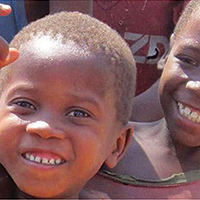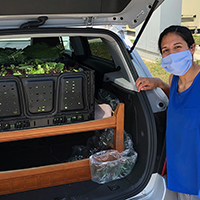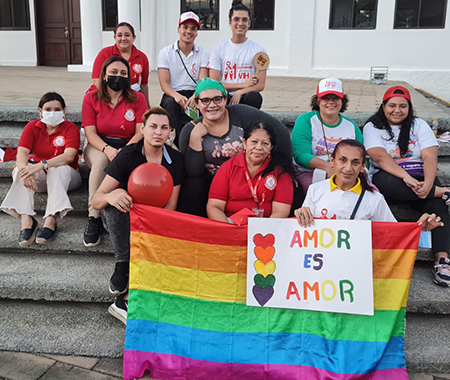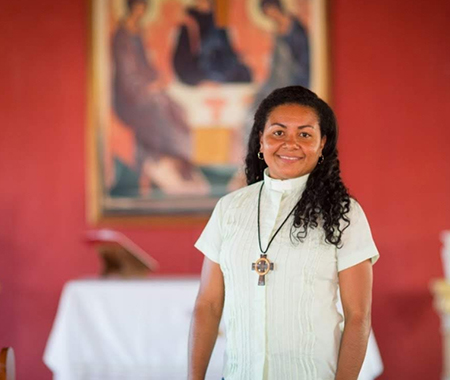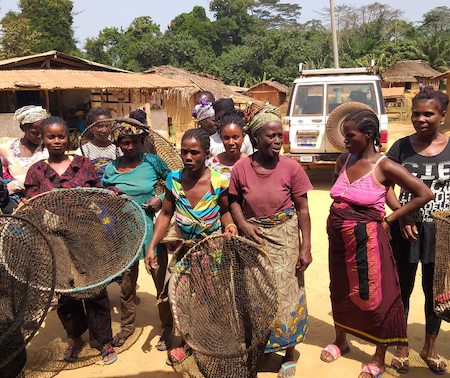Episcopal Relief & Development believes every woman should live free from violence in a society where she is treated with dignity and respect.
In July, Episcopal Relief & Development staff and partners from Burundi, Liberia and the Democratic Republic of the Congo attended the Women Deliver 2023 Conference in Kigali, Rwanda. WD2023 brought together people from all over the world—from young people to grassroots advocacy organizations, nonprofits to governments—to work collectively to advance gender equality.
As a faith-based organization, we understand that faith leaders are among the most trusted members of society, whose words and actions carry significant influence. As such, faith leaders are uniquely positioned to confront harmful social norms and behaviors, advance social change and equality, and prevent violence against women and girls. There is a growing body of evidence, including our own work in Liberia, that engaging faith leaders—Christian and Muslim—in scripture-based activities contributes to fewer incidences of gender-based violence.
During a well-attended side event at Women Deliver 2023, Episcopal Relief & Development and World Vision USA hosted a conversation to discuss learnings from their faith-based programs advancing Gender Equity and Social Inclusion (GESI) in communities across the globe. Throughout the conference, staff from Episcopal Relief & Development joined partner staff from Episcopal Church of Liberia Relief & Development (ECLRD), Service Anglican pour le Développement Communautaire (SADC), Diocese of Aru and Diocese of Bukavu to host mini-workshops around topics including sustainable approaches to GESI; tools and tactics to capture impact evidence; and instances when inclusion, social and behavior change were challenging for faith actors and communities.
Keep up to date with our efforts to end gender-based violence and don’t miss a single impact story, press release or urgent announcement—sign up for one or more newsletters.
“Simultaneously, women and girls are active change agents with frontline experience and expertise, innovators in transformation, highly influential decision-makers, educators and caretakers, Indigenous and traditional knowledge keepers, adaptation and mitigation entrepreneurs, storytellers and speakers, stakeholders and sovereigns.”
—The Most Rev. Michael Curry, Presiding Bishop of the Episcopal Church
CONNECT WITH US ON SOCIAL MEDIA
PROJECT SPOTLIGHTS
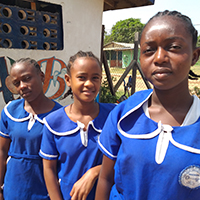
Liberia
With the Episcopal Church of Liberia Relief & Development, we are engaging young people and faith leaders in addressing and preventing violence against women and girls.
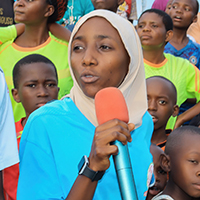
Burundi
With our support, our partners in the Province of the Anglican Church of Burundi are working to change harmful gender and social norms and practices.
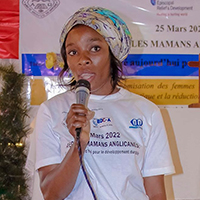
Democratic Republic of the Congo
Our work with the dioceses of Aru and Bukavu addresses violence against women by increasing church and community participation in response to and awareness and prevention of violence.
FOCUS AREAS
How Vilma Is Making Her Daughters' Dreams Come True
Comprehensive Endline Evaluation for Liberia’s Violence Against Women and Girls (VAWG) Program
The report presents key findings from Violence Against Women and Girls (VAWG) Program in Liberia, “Scaling Up Faith Leaders’ Engagement to Prevent and Respond to VAWG.” The program was implemented in partnership with Episcopal Church of Liberia Relief and Development. The evaluation was independently conducted by Dr. Elisabet le Roux of Stellenbosch and Dr. Julienne Corboz, Independent Consultant.
The Gendered Impact of COVID-19 on Women and Girls in Liberia
Incidences of violence against women and girls (VAWG) rose in Liberia during the pandemic. This qualitative research investigates the impact and outcomes COVID-19 had on women and girls in Liberia. Learnings from the research will be used to inform VAWG programs in humanitarian crises.
2018-2022 Scaling Up Faith and Youth Leaders’ Engagement to Prevent and Respond to Violence Against Women and Girls (VAWG) Program in Liberia Poster
Overview of Liberia’s Ending Violence Against Women and Girls (VAWG) Program with results and learnings from the 2018-2022 program endline evaluation. (This is a 36″x36″ poster.)
Gender and Social Inclusion (GESI Analysis) in Early Childhood Development Programming Poster
Overview of Episcopal Relief & Development’s integration of Gender and Social Inclusion (GESI) in Moments That Matter®, an early childhood development program partnership of Episcopal Relief & Development. (This is a 36″x36″ poster.)
2022 Project Spotlight: Brazil
An overview of the work done by our partner, Servicio Anglicano de Diacono e Desenvolvimento (SADD), the development arm of the Episcopal Anglican Church of Brazil (IEAB) to train and equip local leaders in preventing and responding to violence against women and children, while providing services for survivors.
2022 Project Spotlight: Honduras
An overview of our partner Siempre Unidos’ Siloe Project which upholds the dignity of people such as commercial sex workers, LGBTQ+ people, people living in slums, incarcerated people and ethnic minority communities.







